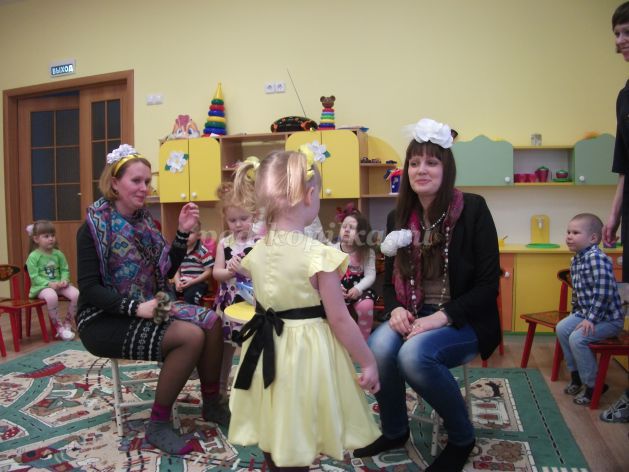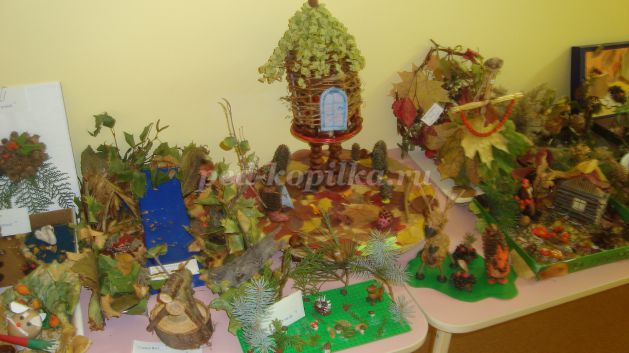Problems of organizing interaction between an educational organization and a family.
One of the trends in modern preschool education is the organization of interaction between teachers and families.
Unfortunately, the socio-economic situation has exacerbated the position of detachment and alienation of parents from the educational organization. More often than not, there are two extremes. The first situation is when the parents make excessive demands on the upbringing and education of the child to the kindergarten, the parents in such a situation act as critics who evaluate the work of the educator. The second situation is when the family is completely indifferent to the development of a preschooler. And it turns out that parents act more often as observers. A full day in the kindergarten, circles, additional education, and then a TV or computer, a walk "along the way" - this is, unfortunately, most often a day for a child before entering school.
The situation is, of course, deplorable. So how do you "engage" parents in raising their own child?
Let us first try to identify the main reasons that hinder the interaction of teachers and parents. I can highlight the following issues:
- low competence of the teacher in matters of interaction with parents and legal representatives;
- sometimes the unwillingness of the teacher to establish contact with the family;
- underestimation of the potential of the family;
- detachment from the wishes of the parents, due to sometimes excessive requirements for the teacher;
- lack of understanding among parents of the inherent value of the preschool period, preschool childhood;
- low socio-cultural level of the family;
- low level of psychological and pedagogical competence of parents.
How to start working on the interaction of the teacher? First of all, you need to constantly improve your own competence. The teacher for the parent should act as a specialist, always ready to provide advice. On the part of the educator, there should always be a sensitive and attentive attitude to everything that happens to the child, not only within the walls of the kindergarten, but also to what happens in his family. Yes, of course, information stands exist in every educational organization. But most often, they are of a formal nature, and parents, most often because of their constant haste, do not look there. Therefore, live communication is very important. Parents should see the teacher's interest in the development of a preschooler, they should feel that an individual approach is being shown to the child. Usually, I start a conversation with the phrase "... I'm worried about your child", "it would be nice if you did this and that ...". In no case should the teacher act as an accuser or "teacher", constantly evaluating the actions of parents. The role of the educator is to help, suggest, direct.
Another problem is the lack of uniform requirements for the child. In the kindergarten - some requirements, at home - others. And in this case, the general attitude towards the joint solution of problems in the upbringing and education of a preschooler is very important.
It is important to hold events jointly with parents, to organize joint activities of the child with parents; carry out activities to improve the psychological and pedagogical knowledge of the family.
1. Joint activities with parents. Most often it happens that at all holidays parents act as spectators. Yes, ceremonial events, clearly organized, should take place in a children's educational institution.
But one should not underestimate the role of "free" communication, the creation of an environment close to "home". We regularly hold group tea parties (where parents act not only as a spectator, but also as participants), joint excursions, joint visits to events outside the kindergarten. This allows not only to establish communication between the teacher and the family, but sometimes simply allow parents to set aside time for full communication with their own child. We make gifts and crafts, showing interest in the events taking place in the families of pupils (birthdays of parents, etc.)

2. Organization of joint activities of the child with parents. Our group hosts seasonal exhibitions of joint family creativity; exhibitions dedicated to significant dates; thematic exhibitions on the topics of complex thematic planning of a kindergarten. Parents prepare joint reports for classes, conversations, photo reports (senior preschoolers).

3. Measures to improve the psychological and pedagogical competence of parents. It is important to hold parent meetings in an unconventional form: round tables, trainings, discussion of pedagogical situations and problems specific to different age periods of a preschooler's development. We also constantly conduct surveys for parents to clarify problems and determine the wishes of parents.
In conclusion, I want to say that any interaction should be aimed at creating a "success situation". If you talked about the problems of the child, do not forget to celebrate even the smallest achievement, tell the parents about it. Praise your parents if they listened to your advice and you saw their efforts in the development of their own child. Sometimes a "success situation" works wonders.
